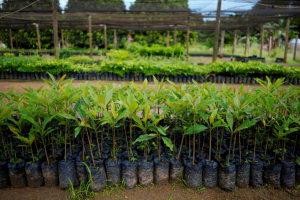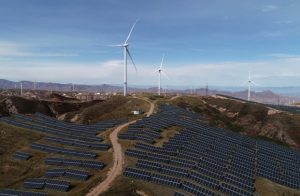Global central banks need to re-think their monetary policies with a focus on the impact of climate-change on labour markets or risk being blindsided by its effects, the London School of Economics has warned in a report published on Wednesday.
Climate change and policies aimed at a green transition would impact labour productivity and availability, with up to 1.2 billion workers in 182 countries vulnerable to climate disruption, the university’s Centre for Economic Transition Expertise (CETEx) said in the report.
In sectors exposed to heat — particularly agriculture and construction — labour productivity will be hit even under relatively optimistic scenarios in which global warming is limited to 1.5-2 degrees Celsius, the centre said.
Also on AF: Climate Chaos ‘Could Disrupt Half of Global Chipmaking by 2050’
CETEx urged monetary authorities to pay greater attention to environmental risks – from natural disasters to the consequences of the green transition.
“Our research shows that central banks should seek to integrate environmental employment risks into their policies and operations,” Joe Feyertag, a senior policy fellow at CETEx and author of the report, said.
The European Central Bank and the Bank of England have highlighted the dangers stemming from climate change and its potential impact on inflation, growth and banks’ health.
But the US Federal Reserve, in many ways the world’s most influential central bank, withdrew from a climate-focused network of authorities earlier this year, raising questions about the depth of its engagement on these issues.
CETEx’s report found rich countries were most at risk from the shift away from pollution-intensive industries.
These risks include the loss of labour from a shift away from carbon-intensive industries such as fossil fuels, and at the same time, the risk of a lack of availability of enough skilled labour for industries such as renewables and carbon removal.
By contrast, poorer regions in Asia, Africa and Latin America face a bigger threat from physical risks such as floods and droughts. Asia, particularly Southeast Asia, is among the regions most vulnerable to climate change.
Over the past two years, countries across the continent, including China, India, Malaysia, Indonesia and Vietnam, have seen a spike in occurrences of floods and droughts, brought on by either extreme rainfall or extreme heat.
China alone has reported $7.12 billion in losses in the first half of this year from extreme weather – mainly flooding.
Threat of greater inflation
The divergent pressures in rich and poorer economies, combined with demographic shifts and tighter immigration policies, could further strain labour markets in developed countries while loosening them in emerging ones, the CETEx study said.
CETEx’s Feyertag also warned that labour market disruptions could amplify social inequalities, especially in countries with rigid labour markets
Inflation tends to be higher in a tighter labour market, all other factors being equal. Low productivity can also contribute to high inflation.
Feyertag reviewed 114 central bank mandates and found just 15 of them, including the Bank of England, explicitly reference employment as a main or secondary objective. The US Fed and Reserve Bank of Australia include jobs as a core policy goal.
This could give some of these banks cover to take bolder action, in order to cushion the labour market from the impacts of climate change.
“If their mandate allows, (central banks) could even take more active steps to stimulate demand for workers from low-carbon or climate-resilient employment opportunities and thereby smooth this path,” Feyertag said.
- Reuters, with additional editing by Vishakha Saxena
NOTE: A new image was put on the top of this report on December 2, 2025.
Also read:
Continued Fossil Fuel Investments Put $557 Trillion ‘At Risk’
China’s Losses From Floods, Disasters in First Half: $7.6 Billion
Bridge to Nepal Washed Away as Flash Floods Rock China
Floods Swamp Cities in Southwest China, And More Storms Due
Firms Underestimating Risks From Carbon-Fuelled Climate Change
Carbon Removals Not Growing Fast Enough For Climate Goals
Climate Change Cost China $32 Billion in Just One Quarter























